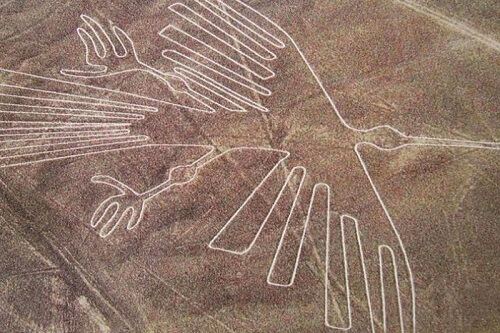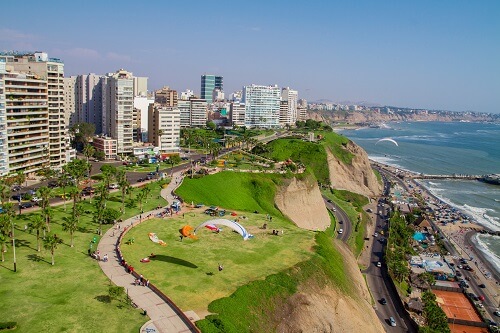The Nazca Lines are one of the most impressive-looking archaeological areas in the world and a remarkable example of the traditional and millenarian magical-religious world of the ancient Pre-Hispanic societies that flourished on the Peruvian south coast between the 8th century BC and the 8th century AD.
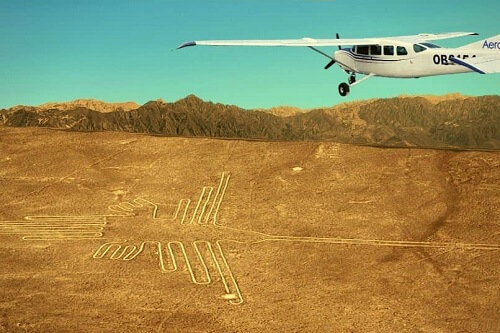
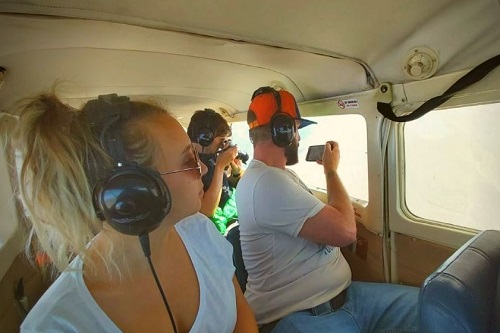
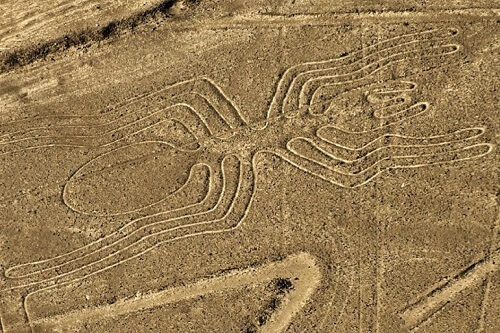
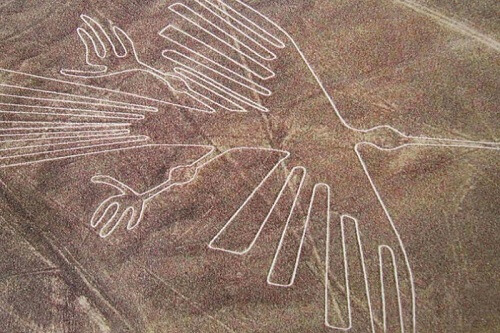
- Half day tour
- Dialy departures
- Group excursion
- Tourist transportation
- Entrance tickets
- Professional guide
Highlights
- Explore the amazing Nazca Lines by a 1:35 hour flight from Pisco airport. We will travel from Lima very early in the morning, have the tour by small plane, have lunch, and then take the bus back to Lima.
- Location: 3.5 h from Lima
- Places to visit: 19 classic geoglyphs: The Whale, Astronaut, Monkey, Dog, Spiral, Spider, Condor, Seaweed, Gannet, Flamingo, Pelican, Parrot, Hummingbird, The Hands, The Tree, Lizard, Flower, The Traveler, Fertility, The Royal Family .
- Departures: Everyday. 04.30 am
- From: Your hotel in Lima and back.
- Return time: 08.00 pm in your hotel.
- Transport: Tourist bus and small plane.
Inclusions
- Roundtrip Lima hotel transfer in a tourist van
- Roundtrip tourist bus tickets from Lima
- Round trip transfer from the bus station in Paracas to go to the airport
- Tour from the air to Nazca Lines in a Cessna Gran Caravan small plane
- English-speaking professional tour guide
- Entrance tickets visit the Nazca Lines
- Airport tax
Booking terms
- A full payment is required to confirm the reservation.
- Cancellations made less than 24 hours before the tour are nonrefundable.
- Cancellations made more than 24 hours before the tour are 100% refundable less the 5% for administrative fees.
- You need to provide the hotel or place to be picked up for the tour, and it must be within the Historical Center of Cusco.
- If the access of your hotel is remote please ask if we can pick up from there.
Itinerary
Pick up at 04.30 am from your hotel in Lima.
We will take you to the tourist station to board a bus that will take you to Paracas city in the south of Lima. After three and a half hours you arrive and we will be waiting for you at the station, then we will drive to Pisco airport for 30 minutes. Once there, we will have a short briefing about the Nazca lines. Then we will wait for our turn to board a Cessna Grand, a modern small plane with all the safety precautions ready to depart.
The guided tour will be led by the pilot who will take you to a magical tour exploring the enigmatic Nazca lines. After one and a half hours you will be back at the airport and the tour will end.
Afterwards, we will take you to Paracas for lunch. After a good meal we will take you to Paracas bus station. Your bus will depart 03.40 pm and you must be at the station by 03.20 pm. Upon your arrival to Lima city at 7.30 pm we will take you back to your hotel.
End
Weight limit:
The airlines in Peru have a weight restriction of 200 pounds (90 kilograms) per passenger for safety reasons. The weight restriction for two passengers is 400 pounds, or 180 kilograms. Before making a reservation for the tour on our website, if your weight exceeds these restrictions, kindly email us to let us know. If the airline needs to fly with one empty seat, you might have to pay an additional fee. We can frequently avoid having to charge you extra by placing heavier passengers on a flight with lighter passengers.
![]()
Discover and explore the Inca’s land and feel Peru’s magic with us!
Whatsapp
Icon-mail
Icon-phone-call
book now !
The Enigmatic Nazca Lines:
The Nazca lines and geoglyphs, which were named a UNESCO World Heritage Site in 1994, are now a popular tourist attraction in Peru. A master plan has been required to ensure the long-term preservation and stewardship of the site due to conservation challenges, such as tourism management and the possibility of flooding from El Nio. In order to promote plan implementation through institutional collaboration and community engagement, which will be a next crucial step to ensure that these mystifying remnants of the past continue to fascinate future generations, the lines and geoglyphs were added to the 2012 World Monuments Watch list.

